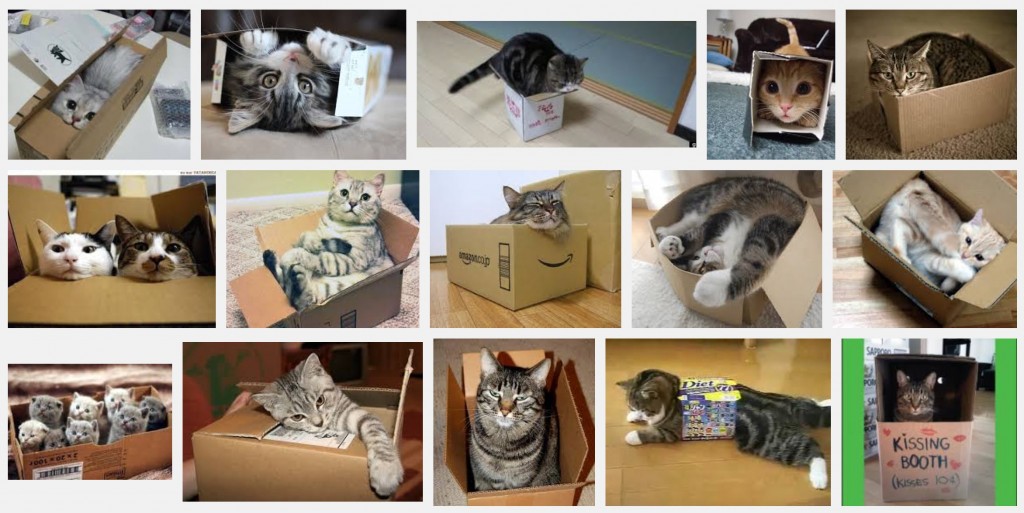Cat owner? Ever pondered why your aloof, inscrutable feline friend loves boxes? Here are some answers courtesy of people who study these kinds of things.
From Wired:
Take heart feline enthusiasts. Your cat’s continued indifference toward her new Deluxe Scratch DJ Deck may be disappointing, but there is an object that’s pretty much guaranteed to pique her interest. That object, as the Internet has so thoroughly documented, is a box. Any box, really. Big boxes, small boxes, irregularly shaped boxes—it doesn’t matter. Place one on the ground, a chair, or a bookshelf and watch as Admiral Snuggles quickly commandeers it.
So what are we to make of the strange gravitational pull that empty Amazon packaging exerts on Felis sylvestris catus? Like many other really weird things cats do, science hasn’t fully cracked this particular feline mystery. There’s the obvious predation advantage a box affords: Cats are ambush predators, and boxes provide great hiding places to stalk prey from (and retreat to). But there’s clearly more going on here.
Thankfully, behavioral biologists and veterinarians have come up with a few other interesting explanations. In fact, when you look at all the evidence together, it could be that your cat may not just like boxes, he may need them.
The box-and-whisker plot
Understanding the feline mind is notoriously difficult. Cats, after all, tend not to be the easiest test subjects. Still, there’s a sizable amount of behavioral research on cats who are, well, used for other kinds of research (i.e., lab cats). These studies—many of which focused on environmental enrichment—have been taking place for more than 50 years and they make one thing abundantly clear: Your fuzzy companion derives comfort and security from enclosed spaces.
This is likely true for a number of reasons, but for cats in these often stressful situations, a box or some other type of separate enclosure (within the enclosures they’re already in) can have a profound impact on both their behavior and physiology.
EthologistClaudia Vinke of Utrecht University in the Netherlands is one of the latest researchers to study stress levels in shelter cats. Working with domestic cats in a Dutch animal shelter, Vinke provided hiding boxes for a group of newly arrived cats while depriving another group of them entirely. She found a significant difference in stress levels between cats that had the boxes and those that didn’t. In effect, the cats with boxes got used to their new surroundings faster, were far less stressed early on, and were more interested in interacting with humans.
Read the entire story here.
Image courtesy of Google Search.

